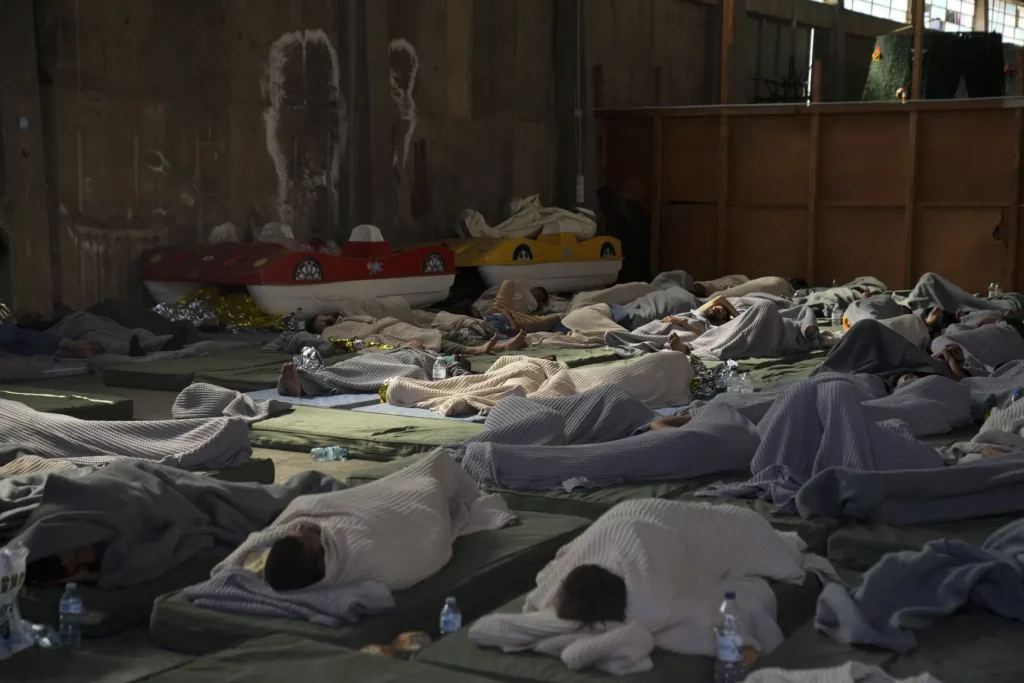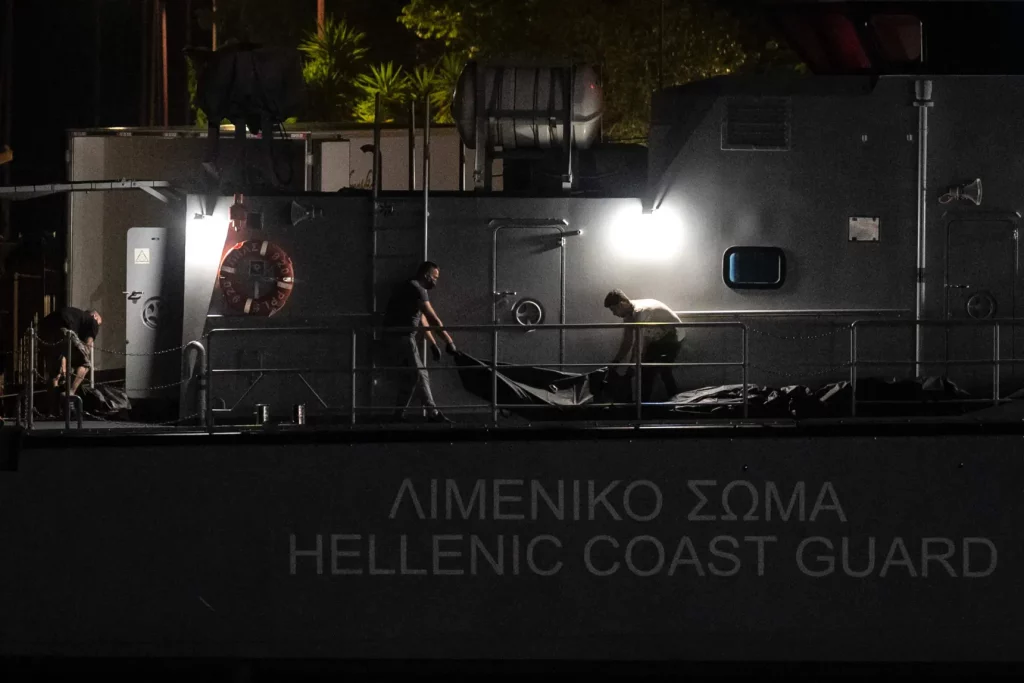In the aftermath of a tragic sea disaster in southern Greece, rescue workers have been engaged in a major search operation to locate possible survivors. The incident occurred when a fishing boat carrying many migrants, attempting to travel from Libya to Italy, capsized and sank in deep waters off the Greek coast. So far, 78 bodies have been recovered, and it is feared that hundreds more may be missing.
Rescue teams managed to save 104 passengers from the wreckage, consisting of individuals from various nationalities including Egyptians, Syrians, Pakistanis, Afghans, and Palestinians. However, authorities remain concerned that a significant number of people may have been trapped below deck during the incident. If this is confirmed, the tragedy will rank as one of the deadliest recorded in the central Mediterranean.
Following an overnight count of the bodies, the confirmed death toll has been revised from 79 to the current figure.
“The survivors are in a tough situation. Right now they are in shock,” Erasmia Roumana,
The head of a delegation from the United Nations Refugee Agency (UNHCR) spoke to The Associated Press following a meeting with the rescued migrants at a storage hangar in the southern port of Kalamata.
“They want to get in touch with their families to tell them they are OK, and they keep asking about the missing. Many have friends and relatives unaccounted for.”

Greece declared three days of mourning and politicians suspended campaigning for a general election on June 25.
Ursula von der Leyen, the President of the European Commission, expressed her deep sadness over the tragedy and pledged to enhance collaboration between the European Union and neighboring countries to intensify efforts against migrant smugglers.
However, human rights organizations argue that these crackdown measures are pushing migrants and refugees towards longer and riskier routes in their quest for safety in other countries.
The search operation conducted south of Greece’s Peloponnese region did not yield any additional bodies or survivors during the overnight and early Thursday efforts.
“The chances of finding [more survivors] are minimal,” retired Greek coast guard admiral Nikos Spanos told state-run ERT television.
“We have seen old fishing boats like this before from Libya: They are about 30 meters (100 feet) long and can carry 600-700 people when crammed full. But they are not at all seaworthy. To put it simply, they are floating coffins.”
According to coast guard experts, it is believed that the boat may have sunk due to fuel depletion or engine malfunction. The movement of passengers inside the overcrowded vessel likely caused it to tilt and eventually capsize.
An aerial photograph, released by Greek authorities, captured the crowded conditions on the deck of the vessel before it sank. Unfortunately, the majority of individuals on board were not wearing life jackets, further exacerbating the risk and potential tragedy.
“We are witnessing one of the biggest tragedies in the Mediterranean, and the numbers announced by the authorities are devastating,” said Gianluca Rocco, head of the Greek section of IOM, the U.N. migration agency.
According to the International Organization for Migration (IOM), more than 21,000 deaths and disappearances have been recorded in the central Mediterranean since 2014, highlighting the dangers faced by migrants attempting to cross the sea.
Greece’s coast guard revealed that it had been informed by Italian authorities about the presence of the trawler in international waters. Efforts by Greek ships and merchant’s vessels to offer assistance were consistently rejected by those on board, as they insisted on continuing their journey to Italy.

Among the survivors, twenty-nine individuals in southern Greece are currently receiving hospital treatment, mainly for symptoms of hypothermia. Eight survivors have been questioned by coast guard investigators. The government officials stated that the survivors would be relocated to a migrant shelter near Athens on Thursday or Friday.
The location of the incident is near the deepest part of the Mediterranean Sea, with depths of up to 17,000 feet (5,200 meters), making it challenging to locate any potential sunken vessel.
Initial reports from the IOM indicated that up to 400 people may have been on board. A network of activists reported receiving a distress call from another boat in the same area, with passengers claiming that it carried 750 people.
The deadliest shipwreck in the Mediterranean in recent memory occurred on April 18, 2015, when an overcrowded fishing boat collided with a freighter off Libya during a rescue attempt. Only 28 individuals survived, while forensic experts determined that there were initially 1,100 people on board.
The situation highlights the ongoing humanitarian crisis and risks faced by migrants attempting perilous journeys across the Mediterranean Sea.

